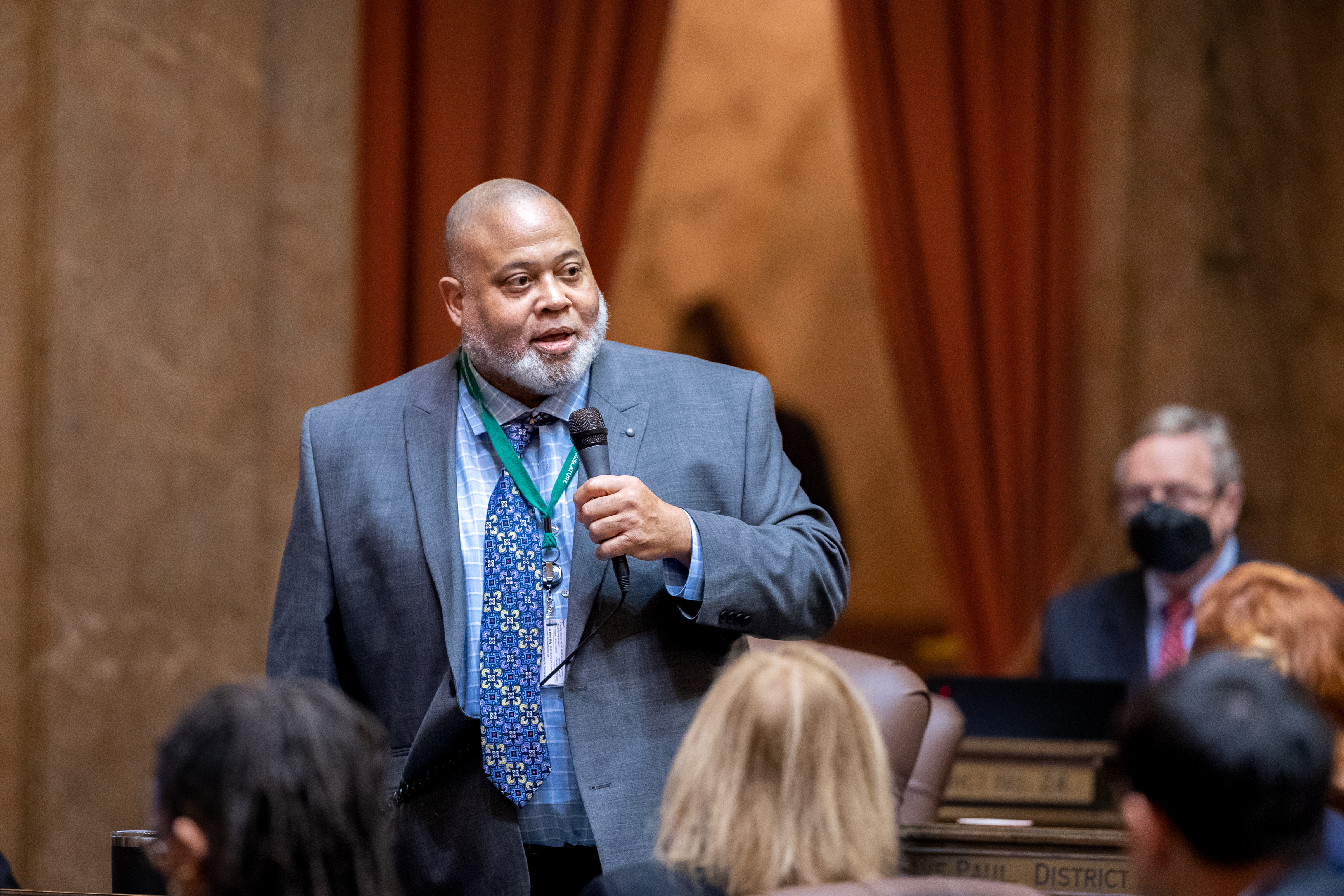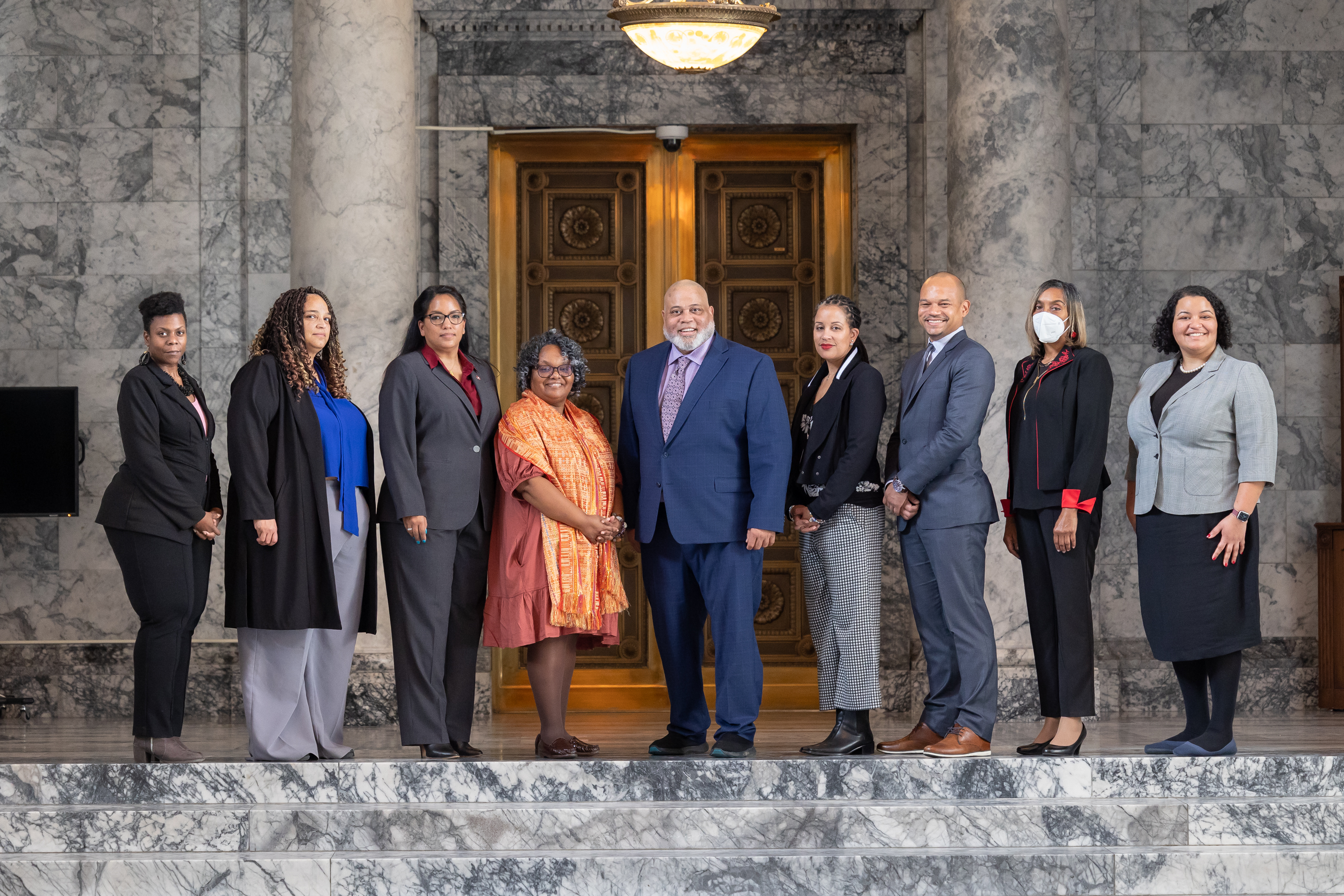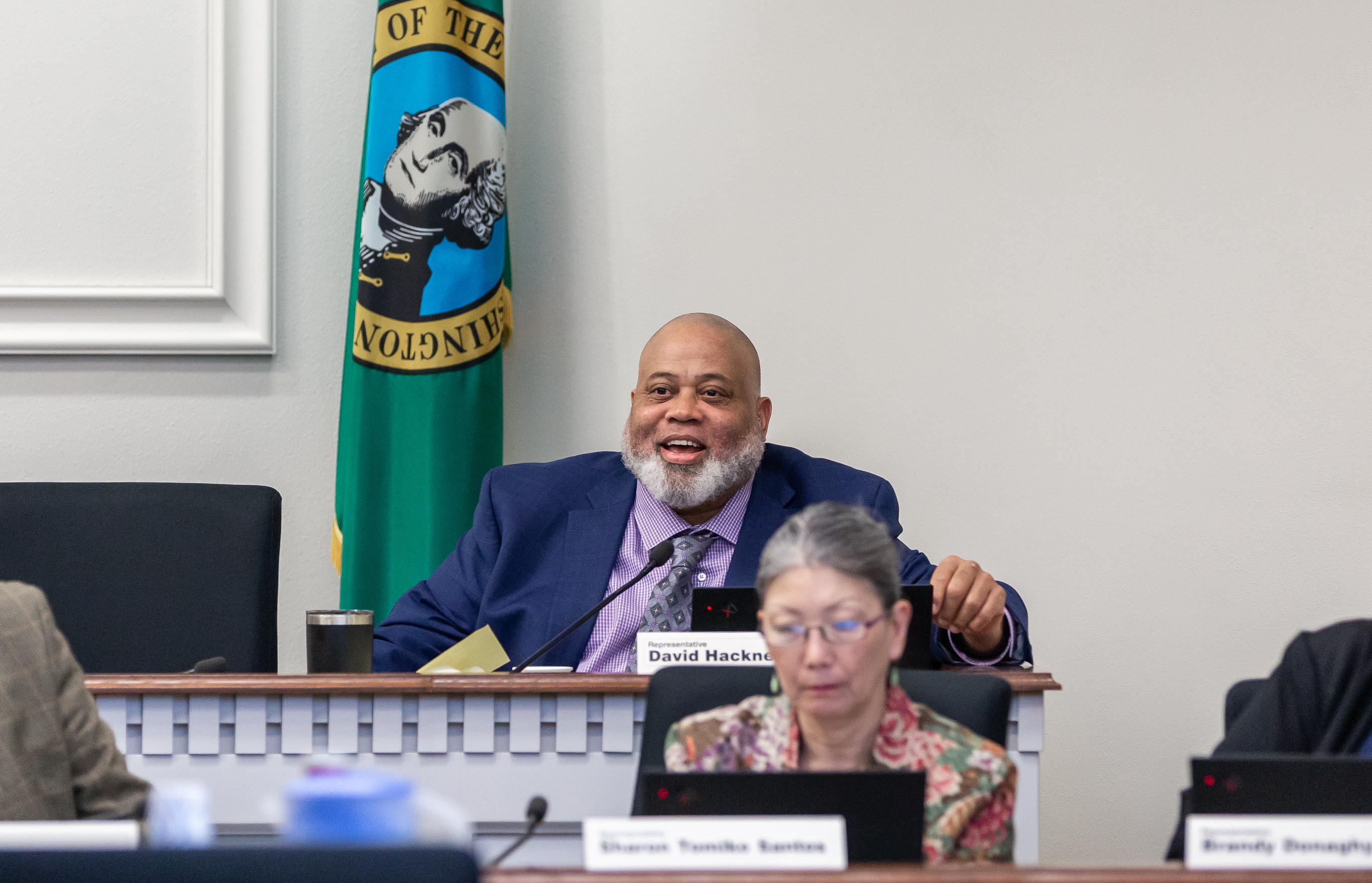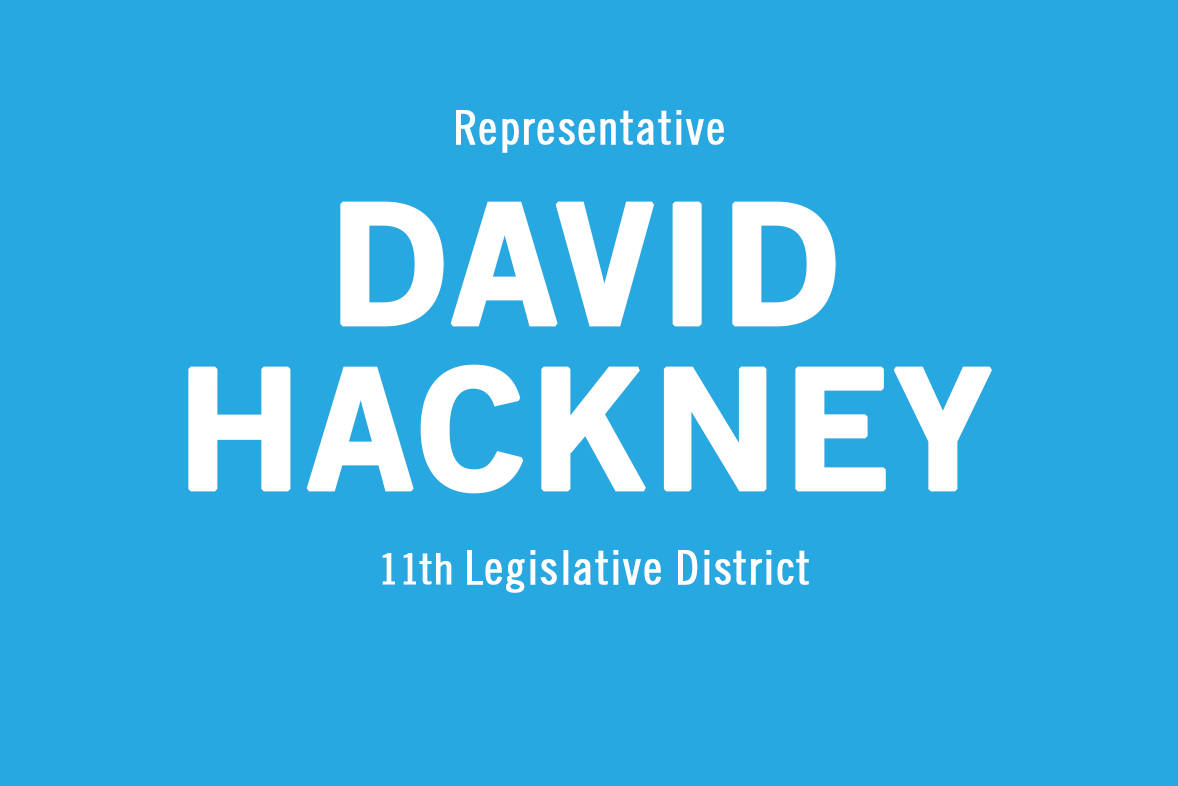Dear friends and neighbors,
As we approach the final week of the 2024 legislative session, I’m excited to update you on the progress of two of my bills that are still in motion:
- House Bill 1185 phases out the sale of mercury-containing bulbs in Washington, reducing environmental harm and shifting responsibility for recycling to the manufacturers.
- House Bill 2219 provides tax exemptions for the sale of components used in the manufacture of affordable housing in an effort to increase supply.
I’m proud of the progress we’ve made so far, and I’m committed to continuing our work towards a cleaner, healthier, and more equitable future for all Washingtonians.
Here’s a look at what else I’m working on:
|
|
Exploring the Foundations: Understanding the Constitution

In my recent presentation to the Page School about the U.S. Constitution and the Washington State Constitution, I explained the dormant commerce clause that prohibits states from enacting laws that interfere with interstate commerce as an example of the federal constitution. I explained how the capital gains tax was challenged under the State Constitution which prohibits a state income tax as an example of the state constitution. By the end of the presentation, I hoped to instill in the students a deeper appreciation for the U.S. Constitution and our state’s foundational document and to empower them to fulfill their role as informed citizens.
|
|
Empowering Our Community: Advocating for the Abu Bakr Youth Center Renovation
I’m happy to share that I’m advocating for the funding of the Abu Bakr Youth Center Renovation project in the state capital budget to support the construction and renovation efforts aimed at benefiting at-risk youth and school-aged pupils in Tukwila. The Abu Bakr Islamic Center of Washington focuses on empowering African immigrant and refugee communities in South King County, particularly those in Tukwila and SeaTac. With a poverty rate of 33.1 percent, the Tukwila location qualifies as Severely Distressed under the New Market Tax Credits criteria. This funding will facilitate the construction and renovation of the center’s interior, providing a community space for youth programs and after-school activities. The completion of this phase by early fall of 2024 will mark a significant milestone in addressing the needs of vulnerable youth populations in the community.
|
|
Reforming Our State Tax Code
Washington’s tax system is becoming fairer for working families. Over the last few years, the pandemic exacerbated pre-existing inequities in our tax system and has disproportionately harmed everyday families who work hard and are just trying to pay the bills.
Tax reform legislation including the Working Families Tax Credit (House Bill 1477) and efforts to close loopholes in the capital gains excise tax (House Bill 2278) have helped the state move away from a regressive tax system according to a recent report from the Institute on Taxation and Economic Policy (ITEP)
House Democrats are working on additional tax reform measures that prioritize working families, vulnerable populations, and critical services like affordable housing and poverty reduction measures. Many of these policies are based off the work of the Tax Structure Work Group’s (TSWG) final report.
The TSWG conducted robust economic analysis and held virtual listening sessions to find out how the Legislature can create a more equitable, transparent, and stable tax code for working families and small businesses across the state. By building a tax code that doesn’t just generate revenue, but distributes it equitably, we can build a stronger and more just community.

|
|
Climate Commitment Act (CCA)
Facing unprecedented climate challenges marked by extreme weather and rising sea levels, Washington urgently needs effective measures to mitigate these impacts, especially in the most affected communities. Washington’s landmark Climate Commitment Act (CCA) proactively addresses these challenges. Employing a market-based cap-and-invest approach, the CCA requires polluters to reduce their climate pollution and funds actions for resilience, clean energy, and environmental health. Coupled with significant federal investments, the CCA presents a transformative opportunity for environmental and societal equity.
Statewide Investments
Rebates for Electric Heat Pumps: Imagine a summer in Washington where every home is cool, and families can afford their energy bills. The $80M allocated for electric heat pump rebates will go directly to Washington families, helping them reduce their utility bills and improving their comfort, especially during increasingly hot summers.
Electric School Buses: All children should be able to travel to and from school safely and healthfully. This initiative goes beyond clean transportation; it safeguards our children’s health and ensures their journey to school is quiet and free from diesel engine pollution.
Innovative Clean Energy: Washington State is championing energy independence in communities by investing in innovative clean energy development, including the installation of solar panels over irrigation canals in Toppenish. This approach cools and conserves water, reduces drowning risks, and makes a sustainable future more attainable.
Additional Statewide Initiatives
The CCA is expanding public transit and enhancing bike and pedestrian infrastructure as pathways to a more connected and healthier Washington. In addition, we’re providing rebates to Washingtonians for electric bikes and personal vehicles and weatherization of homes, reducing families’ gas and energy bills.
Regional Investments
Clean Ferries: Washington State, which is home to the nation’s largest ferry system, is embarking on a transformative journey to modernize its outdated vessels. This initiative will reduce pollution, improve air and water quality, and mark a significant advancement towards a more sustainable and equitable maritime tradition in Washington.
Free Transit for Kids: Kids need the freedom to explore, learn, and engage within their communities, and access to affordable transportation is often lacking. Our young Washingtonians make up 20% of our population, and the CCA bridges the equity gap in communities across our state by offering free transit to kids.
Protecting Natural Resources: This initiative safeguards the critical balance at the intersection of rivers and development. By providing funds to private landowners for conservation efforts, we’re preserving natural landscapes and securing the well-being and diversity of ecosystems for future generations.
Clean Buildings: Every Washingtonian deserves a healthy living and working environment, yet we have work to do with 25% of our state’s greenhouse gas emissions originating from buildings. The CCA targets building emissions, promotes healthier indoor spaces, creates living wage jobs in the building industry, and reduces our overall greenhouse footprint.
Saving Salmon: Salmon plays a critical role in Washington’s natural heritage – and they are in crisis. By making Investments to aid salmon migration and secure critical habitat, the CCA is taking a crucial step in preserving this vital species. This commitment protects an ecological marvel and upholds a cultural legacy that is dear to the people of Washington.
Improving Local Air Quality: Clean air is a fundamental right. To evaluate and enhance air quality, the CCA targets communities impacted by pollution, such as residential areas near the SeaTac airport. This initiative ensures that every breath we take is free from health hazards, improving the well-being of our communities.
Port Electrification: Vibrant and healthy coastal communities start with clean ports. We are creating quieter, cleaner coastal areas by electrifying ports and reducing diesel emissions. Cities like Everett, Tacoma, and Seattle are set to experience a transformative change that brings environmental benefits and improved health and quality of life to their waterfronts.
The CCA’s comprehensive approach not only addresses the immediate challenges posed by climate change but also paves the way for a sustainable and equitable future for all Washingtonians.
Watch my video on the Climate Commitment Act from the wings!

|
|
Building a Better Washington
Last weekend, we passed the House Transportation budget! Our proposed supplemental budget aims to enhance Washington’s transportation infrastructure, investing $14.3 billion, an $838 million increase from the previous budget. The boost primarily stems from re-appropriated federal funding, higher carbon emission auction revenues, and increased Move Ahead Washington spending. Despite a slight decrease in traditional transportation revenue, innovative funding sources like carbon emission allowances are performing better than anticipated.
The proposal allocates funds for various initiatives, including climate-related activities like zero-emission vehicle infrastructure and electrification projects for ferries, ports, and public transportation. Additionally, investments are made in highway improvements, addressing cost escalations and ensuring safety and efficiency. Funding is also designated for agencies like the Department of Licensing and the Washington State Patrol to support operational needs and initiatives.
Moreover, the proposal emphasizes studies and follow-up research to inform future transportation planning and policy decisions. These include evaluating impacts of emissions standards for vessels and exploring alternative uses of highway rights-of-way.
Overall, our budget prioritizes modernizing transportation infrastructure, promoting sustainability, and addressing emerging challenges while ensuring the efficient use of resources.
|
|
Thanks so much for reading!
Sincerely,
Rep. David Hackney




